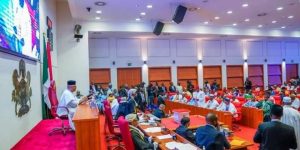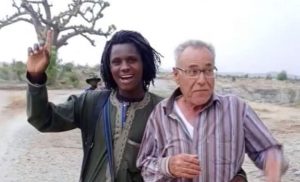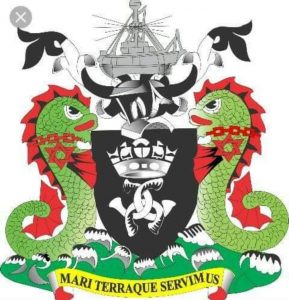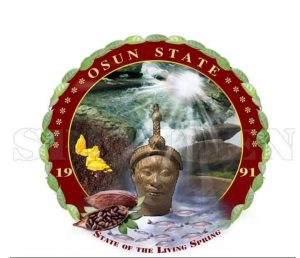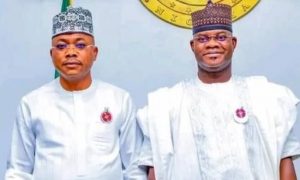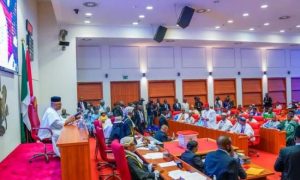Is Diversity An Obstacle To State Construction – M.J. Balogun | GOVERNMEND
The first ‘tribe’ in human history emerged as Eve joined Adam and both begot Cain and Abel. Close-knit as this quintessential first family was, it soon succumbed to conflict. Conflict arose not because of diversity, but due to a combination of factors, among them, avarice, rivalry, rancor, and plain misunderstanding. Nothing has changed. Where racial or ethnic identity offers the passport to power, fame, and riches, the tendency will be for members of the privileged race (or of the ‘ruling tribe’) to erect barriers to inter-group contact or upward mobility. Conversely, the under-privileged groups will tend to find themselves in the mutually contradictory position of rejecting the high costs of, and the low benefits from, their identity, while using the same loss-incurring (‘minority’) status as a rallying point for action. It is a combination of the privileged group’s advocacy of the apartheid-leaning status quo and the underclass’s constant milking of their ‘victim’ status that keeps the identity borders simultaneously rowdy, closed, and impregnable.
Religious and sectarian barriers ought, in theory, to be permeable. The three monotheistic religions (Islam, Christianity, and Judaism) unanimously advocate the tenets of love, honesty, justice, fairness, and compassion. What the Old and the New Testaments enjoin as the Ten Commandments are to be found repeated in different Surahs and Ayahs of the Holy Qur’an.
Nonetheless, the increasing secularisation of faith constitutes a serious threat not only to the purity of religious doctrines but also to inter-faith harmony. Secularisation, as used here, means the tendency to view religion as another bargaining chip in earthly contests, rather than a preparation for life after death. When faith becomes secularised, religious orders will compete for the purses, rather than the souls, of men, just as business firms compete for market share and politicians compete for votes.
Where faiths are secularised, the religious elite and their followers will place high value on the construction of expensive structures (cathedrals, synagogues, and mosques), while doing little to stem society’s spiritual, moral, and physical decay. When viewed as a ‘business’ pursuit or as politics by another name, religion will unfailingly pit one ‘believer’ against another. This is when diversity (of the religious kind) ignites and stokes conflict.
An identity is said to be ‘fastened’ on the citizen’s neck when the group to which s/he belongs lays total claim on his entire personality, including his thought, his response to stimuli, and his allegiance. Religious and ethnic identities lend themselves to this kind of manipulation. An ethnic ‘nationality’, in particular, characteristically sees itself as the custodian of every member’s conscience. To think and act independently of the tribe is to be perceived as a traitor. Among the Yoruba, the slur reserved for an independent-minded tribesman is ‘omo ale’, meaning, an illegitimate child of a luckless Yoruba father. The demand for blind obedience and conformity serves as a major disincentive to foresight, prevision, and seminal thinking within the archetypical ethnic group.
The ‘tribe’ reinforces its totalitarian grip on members by fabricating and overblowing a few ostensibly identical traits. Besides harping on the obvious, such as language, culture, and possibly, spatial proximity, the ethnic group encodes and engrains assumptions about the physical and the subterranean worlds in its members—assumptions that are embellished and then transmitted across generations as unquestionable ‘facts’.
Group indoctrination takes other forms. For instance, it was until recently the practice in a few communities to brand new-borns’ faces. The idea was to ensure the infants’ permanent identification and solidarity with the tribe. The Hutu moderates in Rwanda might have been spared the ordeal of ‘tribal marks’, but those of them who might contemplate treating the Tutsis as human beings were still prevented from doing so by group ideology.
A history of inter-group hostility, ignorance of what goes on behind the ‘alien’ border, an off-hand but disagreeable remark by a member of the ‘stranger’ community, insecurity of life and property—these and other factors may reinforce an individual’s prejudices and confirm his worst, but, possibly, unfounded, fears of ‘outsiders’. In fact, when diversity is discussed within the context of state creation and sustenance, the analyst cannot miss the phobias and insecurities that are now so characteristic of inter-personal and inter-group relations as to be deemed mutually inter-changeable.
The very nature of ethnic separatism renders it liable to opportunistic applications. The temptation to milk ethnicity for political gain becomes irresistible where other mobilization strategies prove ineffective. Where vanquishing adversaries is the overriding goal, a group is apt to fabricate a harmony of interest where none exists. That is how individuals with demonstrably contradictory aspirations are artfully presented as a group with a ‘common destiny’, a group whose members purportedly have the same fears, hopes, and ambitions.
The Yoruba is an example of an ethnic group which has lately projected a united front as a first step towards downplaying an otherwise legendary history of intra-clan hostility. Olatunji Ojo (in an undated York University paper) traces the basically heterogeneous character of the Yoruba society to the 19th century. As he notes, the society was divided along ethnic, class, age and even gender lines. Slave recruitment, he adds, was not “just a simple question of a Yoruba enslaving another Yoruba. Although people in the Yoruba region spoke mutually intelligible dialects, shared several cultural traits, and had a nostalgic attachment to Ile-Ife, the true picture …. was that of a region of multiple ethnicities. Hence slaves were recruited from among the Oyo, Ife, Owu, Ekiti, Ijesa, Ondo, Ikale…” There is nothing to show that much has changed in this regard. The internecine wars between rival Yoruba communities (e.g., between Offa and Erin Ile) are a testimony to the staying power of diversity in a period of rapid change.
All the same, the politically active members of an ethnic group are prone to ignore the group’s internal differences, and instead fabricate the ‘shared’ attributes. To project a sense of “oneness”, the ethnic advocates will likely ignore internal sectarian disputes, and instead make much of what are basically parodies of religious tolerance. The Yoruba-speaking communities of Kwara State were united by language until the ‘hijab’ controversy exposed a hitherto supressed interfaith animus and distrust.
Ignoring the consequences of mass migrations and the probability of mixed ancestral origins, but without a shred of DNA evidence to establish the purity of consanguine ties, the typical tribe points with pride to its members’ ‘common heritage’. If challenged to validate its claim of the ‘common history’ of a people without a writing tradition, the tribe responds with unverifiable assertions, unsubstantiated assumptions, received wisdoms, anecdotes, and where all else fails, curses on skeptics, ‘traitors’, and nosy truth seekers. Conveniently playing down the likelihood of diversity in linguistic origins, and the communication barriers sometimes erected by the retention of disparate regional dialects, the tribe cites the ‘common language’ spoken by members as another ‘evidence’ of its uniqueness. Yet, try as it may, the tribe cannot erase the diversity in diversity.
In brief, if the post-colonial state is artificial, any state created out of is itself artificial. The newly carved out state will wrestle with precisely the same contradictions that it wishes to consign to, and leave behind in, the multi-ethnic state. It is not the diversity of the post-colonial state which endangers its survival. By the same token, it is not the feigned homogeneity of the pre-colonial society that will guarantee the viability of states that are subsequently created to gratify irredentist urges. Eventually, what will make the difference between state viability and state collapse is not diversity per se but how the diversity is managed. What matters is how the state discharges its responsibility for enhancing and sustaining the “identity value of citizenship”.
At the very least, the identity value of citizenship suggests a framework for tracking the importance that various segments of the population attach to a broad range of identities, be it supra-ethnic, ethnic, religious, cultural, linguistic, class, or ideological.
The identity value of citizenship concept serves other practical purposes. First, by separating appearance from reality, the concept helps pin down the real, instead of assumed or invented, ‘causes’ of conflict. Second, by tracing the linkages between an individual’s identity leanings and his probable responses to diversity situations, the concept enables us to contain low-intensity conflicts and settle them up-stream before they escalate into full-blown civil or military confrontations down-stream. Examples of minor conflicts that festered before taking on an ‘opportunistic’ (i.e., ethnic, or religious) snowball, effect are those between an Igbo tenant and a Yoruba landlord (over rent payment!), and between a Yoruba man and his non-Yoruba neighbor over each other’s sanitary habits!
Third, the concept places state agencies (especially, judicial and law enforcement, and other service delivery agencies) under constant pressure to enhance their capacities, and, to move proactively to secure life and property, while also promoting the citizens’ sense of belonging. When the state leaves a space ungoverned or a deep sense of personal injury unassuaged, it creates a vacuum that fissiparous and lawless elements swiftly fill. The risk of citizen disaffection increases where the state fails to address charges smacking of injustice against, and marginalization of, a demographic group. Defeating the post-colonial state’s destabilizing forces requires strict observance of the principles of equity and equal opportunities. It further entails adopting a whole-of-government approach to the enhancement of the identity value of citizenship.
Source: Premium Times

